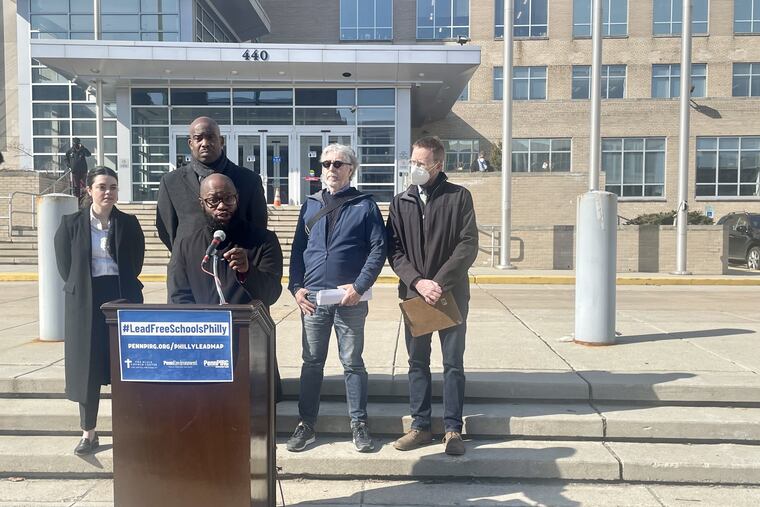Getting lead out of Philadelphia schools’ drinking water is a problem we can actually fix | Editorial
A proposal in City Council would replace every drinking fountain in every public school with a hydration station that filters out lead. Lawmakers should not hesitate to pass it.

It is extremely rare for the Philadelphia School District to be able to scratch an item off of its to-do list by taking one step that would eliminate a potential health threat to nearly all of its students. But here is a fixable problem: lead contamination in school drinking water.
Drinking water from a fountain in any public school in the city is a gamble. Nearly two-thirds — 61% — of water sources tested in schools in recent years contained lead. And 98% of the schools in which water was tested had some degree of lead contamination. Those are the grim findings of a report released last month by PennPIRG Education Fund, the PennEnvironment Research and Policy Center, and the Black Church Center for Justice and Equality.
» READ MORE: 98% of Philly schools tested in a new study had some lead-containing water; district disputes findings
Prolonged exposure to lead has long been associated with irritable behavior, inability to concentrate, and memory loss — as well as increased risk of high blood pressure and kidney disease. Studies show that exposure to lead increases the chances that children will be suspended from school and perform poorly on proficiency tests.
The existence of lead in school drinking water is hardly a new finding, and lead isn’t the only toxin that puts students and teachers alike at risk — as documented by a 2018 investigation in The Inquirer.
When the new report on lead in schools was released last month, the School District went on the defensive. In an op-ed for The Inquirer, Reggie McNeil, the district’s chief operating officer, explained: “Their statistics — which included a misleading claim that 98% of schools tested were positive for lead in water — were based on a standard of 1 part per billion, which is well below federal (15 ppb) and Philadelphia (10 ppb) requirements.”
McNeil is not wrong, but he is focused on a technicality. According to the Environmental Protection Agency, the recommended level of lead in water is “zero” — even though the level at which action is required is higher.
» READ MORE: School District: Data on lead in water are misleading | Opinion
But there is very good news. The cost of replacing every drinking fountain in every Philadelphia school with a hydration station that filters out lead is estimated at $4 million.
Between the $1.1 billion in federal COVID-19 relief funds the district is receiving and the hundreds of millions of American Rescue Plan dollars that the city still hasn’t spent, finding $4 million over three years to ensure lead is no longer in school drinking water should be within reach.
Last week, City Councilmember Helen Gym introduced legislation to require a transition to lead-free hydration stations — where students can also fill water bottles — by mid-2025. A majority of Council and the Philadelphia Federation of Teachers support the legislation. It’s essential that Council pass it and ensure that the district has the money to meet that goal.
In the coming weeks, Philadelphia will announce a new school superintendent. There is an opportunity for the city this spring to make sure that whoever ends up getting the position will have one fewer item on their to-do list. For all the problems in schools that we can’t make go away, contaminated water isn’t one of them.